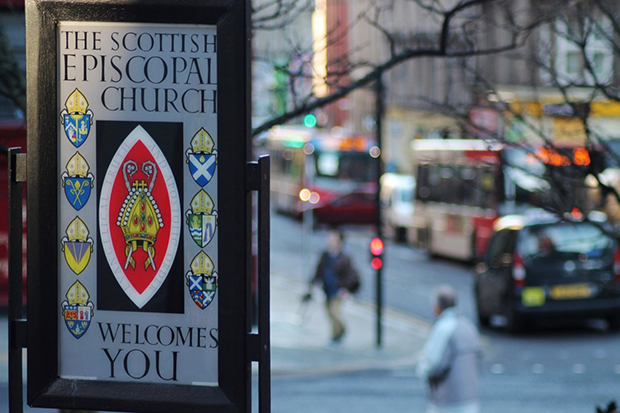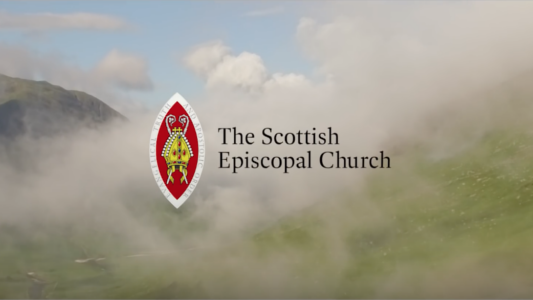Introduction
The need for high standards of food safety has been highlighted in recent years in a number of well-publicised incidents of food poisoning. The fact that the most notable of these arose from lunches served in a church emphasises the need for vestries to adopt a responsible attitude toward food safety. Food should therefore be stored, handled and processed safely and hygienically and premises should continue to be kept clean and hygienic.
Training
It is a legal requirement that those involved in preparing or handling food which is supplied to others are trained in food hygiene to a level appropriate for their job. For example, there could be one person in each congregation, trained to at least intermediate level, in overall charge of co-ordinating food safety and the catering arrangements within the church
The nature of the training required will depend on the nature of the catering undertaken.
Food hygiene courses at different levels have been designed by The Royal Environmental Health Institute of Scotland (REHIS). Such certificated training may be delivered by further and higher education establishments, private trainers, or the local authority. Alternatively, non-certificated training may also be delivered. Usually the trainers who provide REHIS training will also offer short, uncertificated training which can be tailored to the needs of individual organisations. (If non-certificated training is undertaken, a note of the content of the training programme, the date and the people trained, should be recorded and made available to Environmental Health officers on inspection visits).
The person co-coordinating the food safety within the church will require training or risk assessment, reviewing procedures and keeping records. The person will be expected to manage food safety in line with what are known as HACCP (Hazard And Critical Control Point) principles. Essentially, these requirements relate to the minimising or managing of risk. HACCP is a food safety management system. Its main aim is to focus attention on critical points in an operation and to take measures to ensure that problems do not occur.
Registration of Premises
Registration of premises used for food business is required by law. Generally speaking, if you are only supplying tea, coffee, biscuits, cans of juice and potato crisps, you will not need to register. If other food, such as cakes or soup, is to be provided, such products should not be stored at church premises unless the premises are registered. If the church premises are used for more extensive catering then consideration should be given to the registration of the premises. You should consult with your local council Department of Environmental Health regarding the nature and use of your premises and agree with them if registration is appropriate. If other groups use the church premises for catering purposes, the Vestry is responsible for ensuring that the premises supplied are appropriate and registered if required.Irrespective of any requirement to register, Congregations should be diligent in following up promptly any recommendations made by Environmental Officers as to improvements to be made to the facilities and in regard to cleaning and general hygiene.
Use of Home Caterers
The Vestry is responsible for all food served by the church – this includes food prepared by church members at home and brought to the church. Given that it is much more difficult to control the environment within which such food is prepared, consideration should be given to limiting the use of such home caterers to low risk foods such as cakes and biscuits. While there would normally be no problem with cakes which do not have high risk ingredients, such as fresh cream, there may be a degree of risk with all other foods and, as a general rule, it is safer to avoid bringing in high risk foods which have been prepared at home. Such items should therefore be prepared within the church premises or be bought in from commercial sources. Whether procedures require to be applied and documentation kept in respect of low risk items such as cakes will depend on the circumstances. If “home cooking” is being donated in connection with an event, then it may be appropriate to record the source and, of course, items should then be handled and stored safely. There may also be labeling requirements so far as items such as jams and cakes sold at Church fetes and the like are concerned.
Use of Outside Caterers
Only outside caterers who hold the Elementary Food Hygiene Certificate should be used and they have adequate insurance cover
Church Lets
Let agreements for outside organisations should include the requirement to comply with the Food Hygiene (Scotland) Regulations 2006.
Labeling of Food containing Genetically Modified (“GM”) Soya or Maize
The presence of GM ingredients should be notified by way of a menu, notice, ticket or label on church premises.
Food Allergies
A small but significant proportion of the population suffers from potentially fatal food allergies, particularly with regard to nuts (especially peanuts). For some, seeds and shellfish can also be a hazard. Those involved in Church catering should be aware of such allergies and procedures should be in force so that, if asked, information can be provided as to food ingredients. An added problem is cross-contamination as even a tiny trace of a life-threatening ingredient may prove a danger. Where such ingredients feature in food served on Church premises, it may be felt appropriate to put up a notice or include a reference on menus or similar documentation that some of the food served may contain nuts or are not suitable for those suffering from nut allergies.
Insurance
Congregations should also be reminded that, although any civil claim for damages arising from a case of food poisoning would, it is anticipated, be covered by a Congregation’s public liability policy, such a policy does exclude deliberate acts or omissions. There is, therefore, a possibility that the insurance cover might be withdrawn by the company and personal liability would attach to individual office-bearers in cases where those office-bearers were aware that standards were such in the Church kitchen that the food supplied was manifestly unsafe for human consumption.
Further information
Your local council Department of Environmental Health should be able to provide you with further information on training providers and the registration process.
Detailed advice on food safety management from the Food Standards Agency Scotland can be found at https://www.foodstandards.gov.scot/consumers/food-safety. More general information is available from their website: https://www.foodstandards.gov.scot/
The Royal Environmental Health Institute of Scotland website on training: http://www.rehis.com/community-training
May 2012
The General Synod of the Scottish Episcopal Church does not accept responsibility for any loss or liability which may arise from reliance on information or expressions of opinion contained in this document.
General Synod of the Scottish Episcopal Church
Scottish Charity No SC015962







